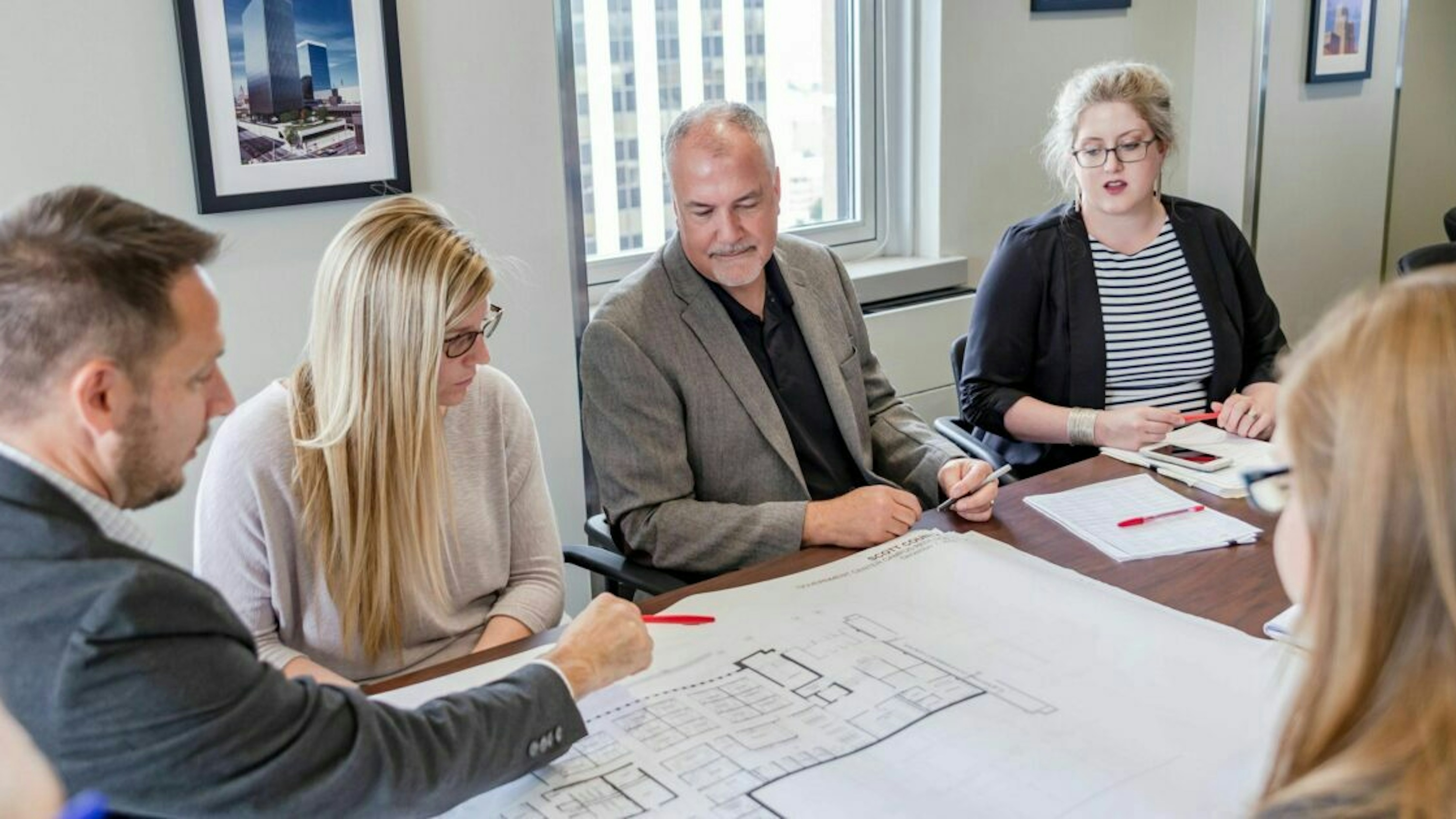
Developing and maintaining a project schedule is key to every successful project. As architects and planners, it’s our job to ensure thoughtful timelines are developed to manage the expectations of all parties and ensure successful project completion. As part of every engagement, we prioritize the client’s goals and objectives when developing a project schedule. Since no project is the same, adjustments may be needed over time to drive progress forward.
Based on our extensive experience working on government projects with diverse budgets, needs and priorities, there are several best practices to follow when creating and managing a project schedule:
Communicate early and often
Regular conversations are key to fostering collaborative dialogue between all parties throughout each stage of the design and building process. This includes establishing clear expectations from the outset and keeping all parties focused on the larger objectives and client goals. When a problem arises, transparent communication should be prioritized to ensure comprehensive solutions are created.
Because every government organization works differently, ample time is required to construct a project schedule that is tailored to the unique review and approval processes and timelines. For example, though we focus on government facilities, our team frequently encounters situations where the schedule must accommodate operational activities so that construction is planned when occupants can be relocated or are absent from the buildings. Often there is a critical need for a facility to be operational by a certain date, so the schedule must be developed with the end goal in mind. Awareness of other influences on the availability of qualified contractors to bid on and execute projects consistent with our client’s schedule expectations is of critical importance. For K-12 education projects, most construction must occur during the summer months, and as a result, we frequently engage in discussions with our government-sector clients to identify opportunities for scheduling their projects to avoid this constraint. These proactive steps enhance the project’s overall appeal to contractors by maximizing the bidding market, ensuring a smoother workflow and minimizing disruptions.
Understand the bid environment
One important aspect of our role involves educating clients about the bidding environment. Our goal is to maximize the attractiveness of the project and make it enticing for contractors. We achieve this by leveraging Wold’s extensive network of connections and industry partnerships.
Sometimes the bid environment is not as anticipated and requires adjustment to the strategy. In 2021, our team partnered with Outagamie County, Wisconsin to provide a space needs analysis and pre-design for the Sheriff’s 911 Communications Center. Following our work, we supported the design of the new 911 Communications Center, which is now under construction. While this well-sized, new construction project went out to bid with a fairly traditional project schedule that considered the school construction climate, it initially garnered minimal interest from potential bidders. Working closely with the County, the decision was made to cancel the bid. Wold initiated conversations with the local contractor community to determine what we could do to make the project more attractive for bidding. As a result of their feedback, we developed a strategy that gave contractors more flexibility to decide when the project best fit into their workload and when they’d be able to begin. This allowed contractors more scheduling latitude and, ultimately, resulted in increased interest in the bid opportunity. The increased bidder interest resulted in more competitive pricing, and the County received multiple bids under its established budget.
While this required some compromise with the Sheriff’s department, the timeline extension proved invaluable. If the original schedule had been followed, the bid would’ve been canceled further along in the process due to a lack of bidders, thus restarting the timeline. There can be benefits to making compromises early to achieve the client’s goals.
Maintain flexibility to allow for better contractor responsiveness
The ability to be flexible with the schedule is crucial, especially when there are multiple concurrent projects. For example, in Montrose County, Colorado, our team was engaged to design both the Montrose County Jail Addition/Renovation, a new Human Services building and a Sheriff’s Substation. These three projects were in design concurrently, and the County was interested in staggering the bidding and construction phases to avoid oversaturating the local contractor market and to maintain a level of project workflow for county facilities management staff.
Our team, in collaboration with the owner’s facility project management staff, recognized the need for good bid coverage for competitive bidding; however, the very busy construction market in western Colorado meant that there were fewer general contractors and subcontractors available to fulfill the work. Given these circumstances, the County is planning to issue these projects one at a time to work with the limited contractor resources.
When faced with limited resources and tight timelines, maintaining flexibility and offering sound solutions helps manage expectations, achieve contractor support and move projects forward.
When developing project schedules, the journey from concept to completion can be a complex process that demands careful planning and adaptability. Regardless of project type, navigating timelines for project success requires transparent communication, a good understanding of the bid environment and the ability to be flexible and pivot to achieve strong contractor support. At Wold, we’ve taken pride in our commitment to delivering exceptional service and fostering collaborative relationships with our clients and partners over the last 55 years. We’re committed to helping our clients successfully navigate the process and making a positive difference in the communities we serve.
Wold has a track record of successfully developing and managing timelines for projects of all types and sizes. If you want to learn more about our experience and capabilities or need additional information about how we can assist with your government facilities, please reach out to our team by calling 1-888-254-6789 or emailing info@woldae.com.